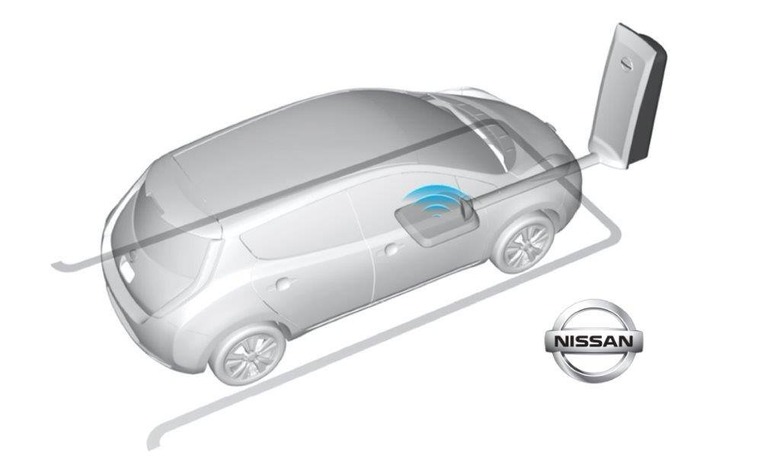Nissan Plans EV Wireless Charging With WiTricity Deal
Nissan's next Leaf EV could recharge without owners having to plug-in, with the automaker announcing it's collaborating with wireless charging developer WiTricity. The deal will see Nissan embrace support for WiTricity DRIVE, a charging system which replaces the traditional electric car chore of having to plug your vehicle into the nearest outlet whenever you park. Instead, owners will simply have to park on top of a charging pad.
WiTricity's system uses magnetic resonance, where effectively a charged coil in the pad induces a current in the received mounted on the underside of the car. It's a different approach, technologically, from the Qi-style inductive wireless charging increasingly prevalent in smartphones. While inductive is generally more efficient a method, it also suffers from a shorter range; magnetic resonance, meanwhile, allows more flexibility in where the car can be parked above the charging equipment.

For Nissan, it would mean a fix for one of the Leaf's ongoing annoyances in ownership: having to remember to plug in. Instead, owners would be able to simply pull into a parking space and the car would automatically begin to recharge. Similarly, DRIVE-compliant pads could be integrated into parking lots and other locations.
It's not the only wireless charging standard that's been put forward for cars, but it has been gaining traction with some big names in electrification. Toyota announced it would adopt WiTricity DRIVE back in 2013, kicking off public trials with a prototype Prius design the following year. In Toyota's system, the car could automatically position itself over the pad for maximum efficiency, all controlled through the touchscreen dashboard interface.
More recently, General Motors joined the party. The automaker – behind cars like the Chevrolet Volt and, just reaching buyers now, the Bolt EV, as well as the Cadillac ELR and CT6 Hybrid – announced it would trial WiTricity's latest DRIVE system, with 7.7 and 11 kW charge rates. The two companies also said they'd work together on pushing third-party adoption of DRIVE for aftermarket charging pads.
NOW READ: 2016 Nissan Leaf EV Review
Still, we're still in the early stages of wireless car charging. The standards body, SAE International, says that the finalized standard won't be complete until 2018, with commercialization to follow in 2020 at the earliest. Part of that is getting the three different types of system currently finding favor with automakers and infrastructure developers to work together, though trials for 11 kW charging and autonomous positioning are also still to be completed.
That timeline has led to some delays in wireless technology from reaching the mass market. Back in 2011, Nissan was predicting the second-generation Leaf EV would launch with wireless charging support in 2014, but that failed to materialize.
